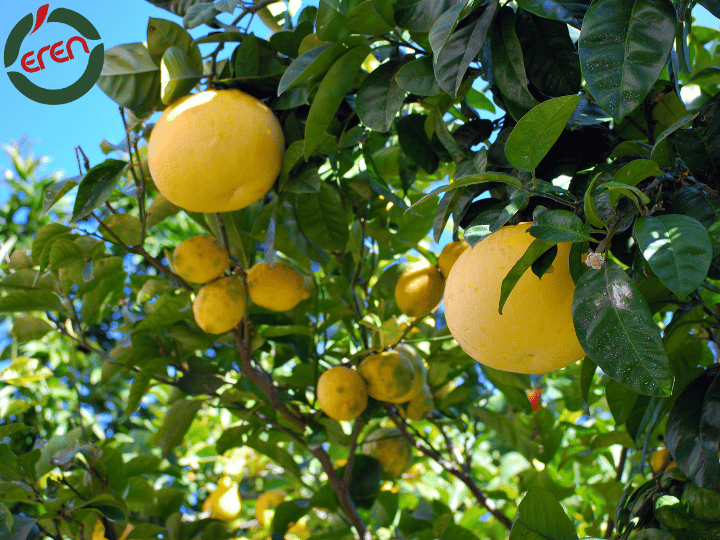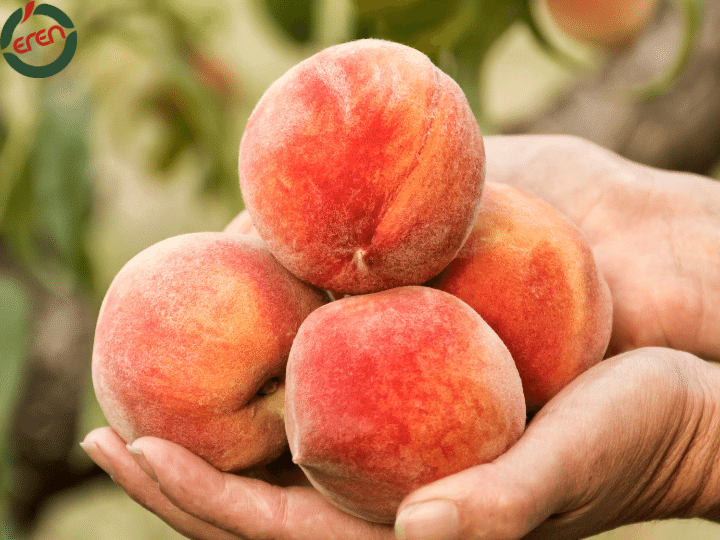Comprehensive Guide to Grapefruit Production
Grapefruits are the largest citrus fruits, known for their unique blend of tart and bitter flavors. Their popularity has surged in recent years, particularly in markets across the United States, South America, and Israel. While less common in Spain, grapefruit production has seen significant growth, especially along the Mediterranean coast and in Andalusia.
When to Plant Grapefruit Trees
The ideal time to plant grapefruit trees is during the spring season, post the threat of late frosts.
Edaphoclimatic Requirements
- Soil: Grapefruits thrive in sandy or sandy loam soils that are well-drained, deep, and free of limestone. The soil pH should be between 6 and 7, and these trees are intolerant to salinity.
- Climate: Being a subtropical species, grapefruit trees need warm temperatures and do not tolerate frost. Temperature significantly affects the fruit's internal and external coloration. These trees are not cold-hardy and do not require chilling hours for flowering. Additionally, relative humidity influences the fruit's shape; grapefruits in tropical or subtropical regions tend to be flattened, while those in arid areas are more spherical. Adequate rainfall is essential, supplemented by irrigation if necessary.

Optimal Plot Orientation
Grapefruit plantations should be oriented towards the sun and protected from wind. These trees require ample sunlight for effective flowering and fruiting, and they are sensitive to wind, which can cause fruit loss due to vibration.
Essential Care for Grapefruit Trees
- Soil Preparation: Preparing the soil involves removing weeds, aerating the topsoil, applying fertilizers or organic matter, increasing water retention capacity, and setting up irrigation systems.
- Irrigation: Grapefruits need frequent and abundant watering, avoiding both overly dry and waterlogged conditions. High-frequency localized irrigation, such as in-ground drip irrigation, is recommended for optimizing water use and enhancing nitrogen fertilization efficiency. This method also reduces crop evapotranspiration.
- Pruning: Grapefruit trees, like orange trees, form a ball shape with production on the periphery. Pruning helps improve light penetration and boosts production. However, grapefruit wood is prone to sunburn, so it is crucial to ensure that main branches remain protected. Pruning is generally recommended at the end of winter before new growth begins, focusing on removing weak and diseased branches and cleaning the center for better light distribution. Excessive pruning should be avoided as it can reduce the harvest.

Nutrient Requirements for Grapefruit Cultivation
Grapefruit crops require significant amounts of nitrogen, potassium, phosphorus, and iron for optimal growth and fruit quality.
- Nitrogen: Essential for growth, flowering, productivity, and fruit quality.
- Potassium: Crucial for protein synthesis, photosynthesis, and carbohydrate metabolism.
- Phosphorus: Important for sugar and nucleic acid metabolism and energy processes in the plant.
- Iron: Necessary for photosynthesis and respiration.
Fertilizers for Grapefruit
Grapefruits require substantial fertilization, particularly during the second sprouting phase each year. The highest nutrient demand occurs in July, August, and September. For organic grapefruit cultivation, fertilizers such as manure, compost, or worm humus are used, along with formulations based on algae, minerals, or other natural elements.
Some recommended fertilizers include:
- Brotovalle N: A compound fertilizer rich in organic elements, copper, manganese, and zinc, containing nitrogen to enhance crop growth and production. It improves crop quality, reduces the effects of adverse conditions, and boosts essential molecule synthesis.
- Engorplus: Composed of free amino acids, organic acids, and vitamins, it enhances cell division, protein synthesis, and fruit size uniformity.
- Siapvalle: A bio-stimulant rich in L-amino acids of animal origin, providing energy to trees, increasing production and fruit size uniformity, and facilitating nutrient transport from roots to the tree's extremities.

Grapefruit Harvesting
In Spain, the grapefruit season typically runs from December to April, with some varieties harvested as early as November and as late as May. Harvesting is generally done manually to prevent skin damage, ensuring the fruit is picked when fully mature since grapefruits do not ripen further after harvesting.
Grapefruit products, such as juices and fresh segments, are gaining popularity in global markets. Turkey, known for its citrus production, is also a significant player in the grapefruit industry. Turkish grapefruit produce is recognized for its quality and flavor, making it a sought-after product worldwide.
Global Grapefruit Production and Turkey's Role
Turkey is a major producer of grapefruit, with cultivation primarily in the Aegean, Marmara, and Mediterranean regions. The favorable climate and soil conditions contribute to the high quality of Turkish grapefruit produce. Turkey's strategic location and advanced logistics infrastructure facilitate the export of grapefruit products to international markets.
Care and Cultivation Practices
Successful grapefruit cultivation requires attention to various factors, including soil preparation, irrigation, pruning, and nutrient management. Utilizing organic and synthetic fertilizers appropriately can significantly enhance grapefruit yield and quality. Regular monitoring and maintenance are essential to ensure healthy growth and productive harvests.
Why Choose Eren for Your Grapefruit Produce?
Established in 1993 in Mersin, Eren began as a small export company focusing on citrus exports to Russia and South Europe. Over the years, we have expanded our markets and product varieties, moving to our own production facility in Tarsus in 2006. Today, we export to 63 countries and offer over 60 varieties of fresh fruits and vegetables, including premium grapefruits.
At Eren, we pride ourselves on our commitment to quality and service. Our state-of-the-art facilities, advanced quality control systems, and dedicated R&D programs ensure that we meet the highest standards. With extensive experience in different customs procedures and packaging preferences, we cater to the diverse needs of our clients worldwide.
We have several partner factories across different regions in Turkey, providing 60 different product varieties of citrus, fresh fruits, and vegetables. Our logistics department offers comprehensive solutions, including trucking, container, reefer, and air cargo options. We also have an Air Cargo division with its own R&D and service focus, ensuring the best possible solutions for our clients.
Eren is praised for its product quality and high standard of service. We are well-versed in different customs procedures, packaging preferences, and cultural demands across various markets. Our sales department speaks seven languages, and we employ over 1,000 personnel during peak season. As a grower, we possess our own gardens of various citrus products and cherries, ensuring a steady supply of high-quality produce.
We are proud to bring you the best of 'Treasured Anatolia's produce, including our premium grapefruit products. Partner with Eren for your grapefruit produce needs and experience unparalleled quality and service.

 Lemon
Lemon Mandarin
Mandarin Orange
Orange Grapefruit
Grapefruit Fruits
Fruits Vegetables
Vegetables


